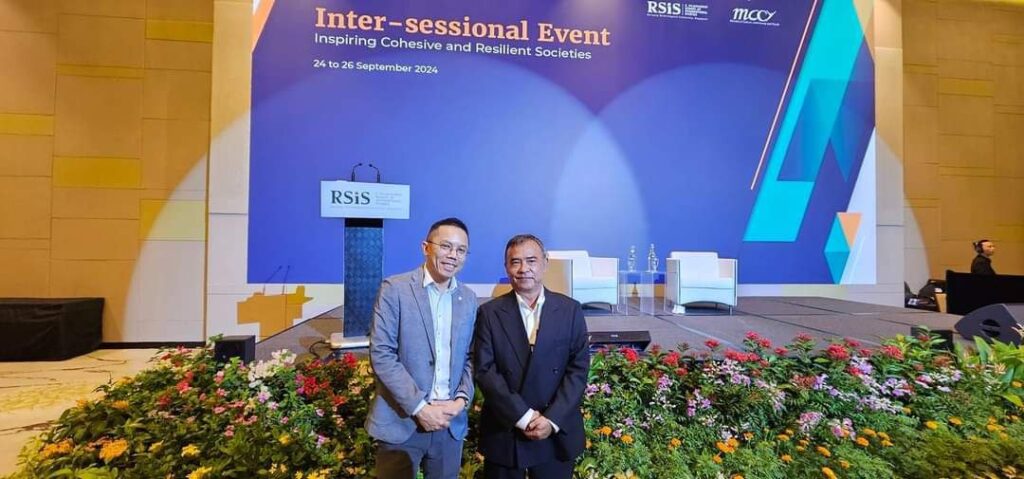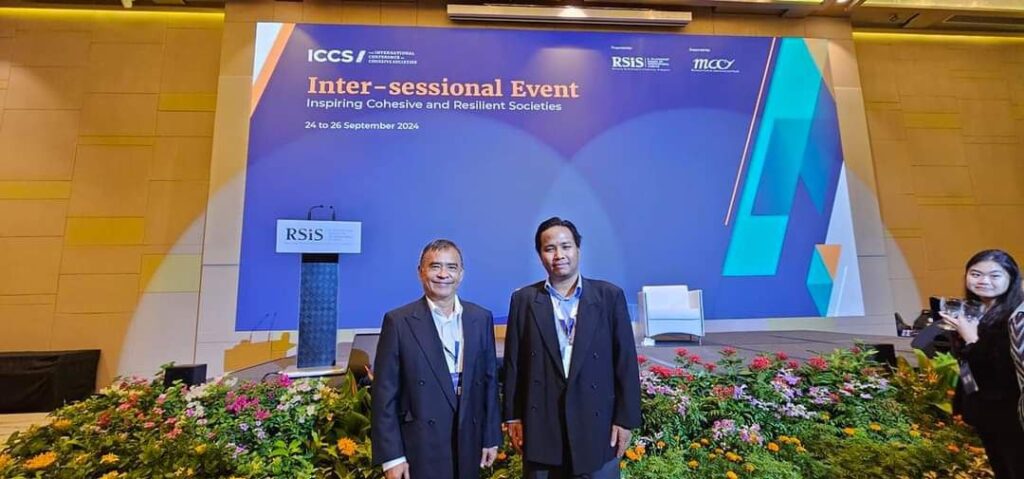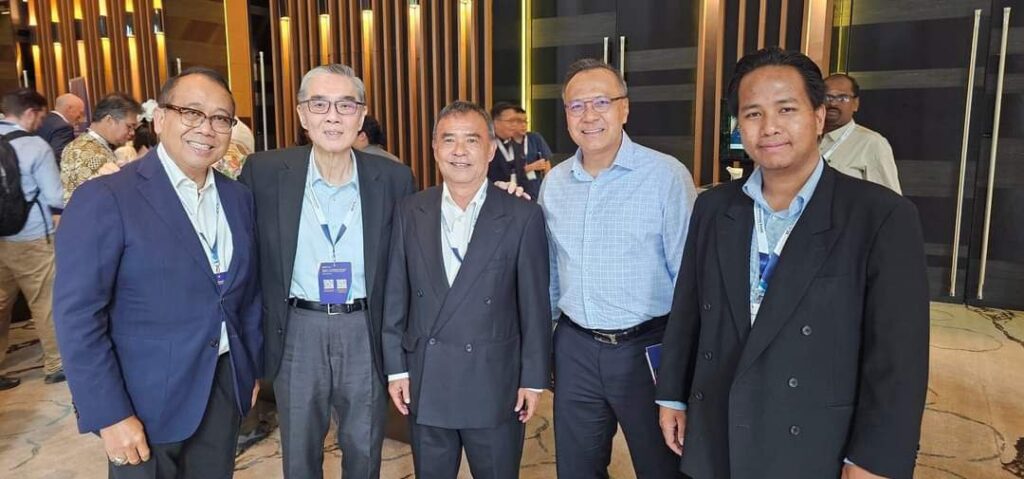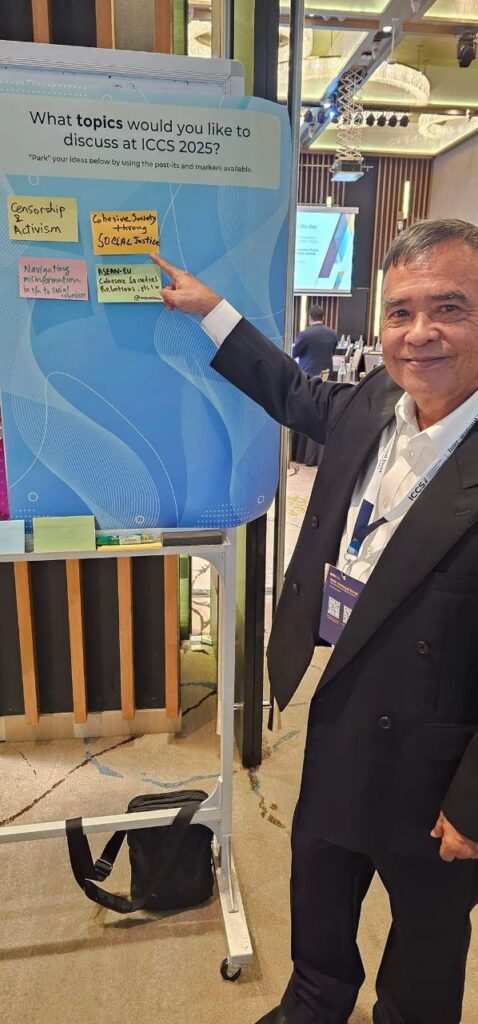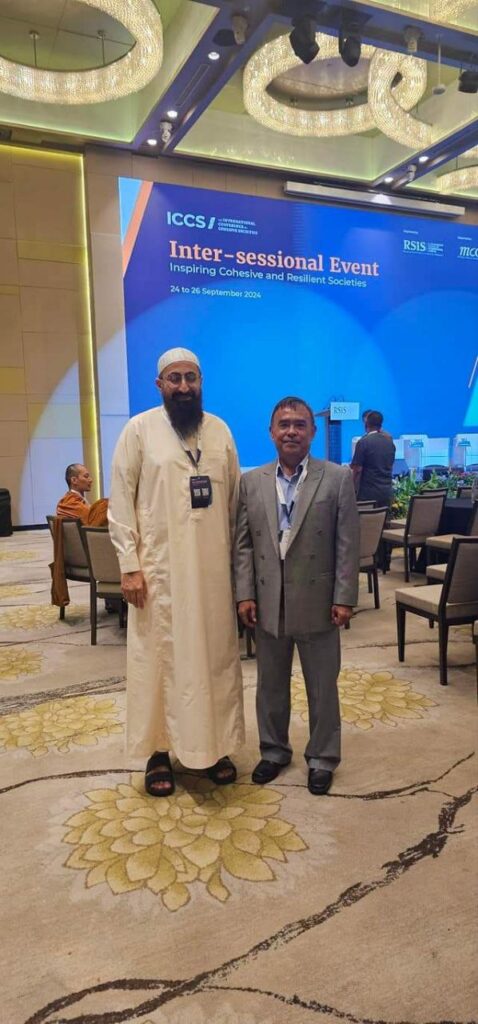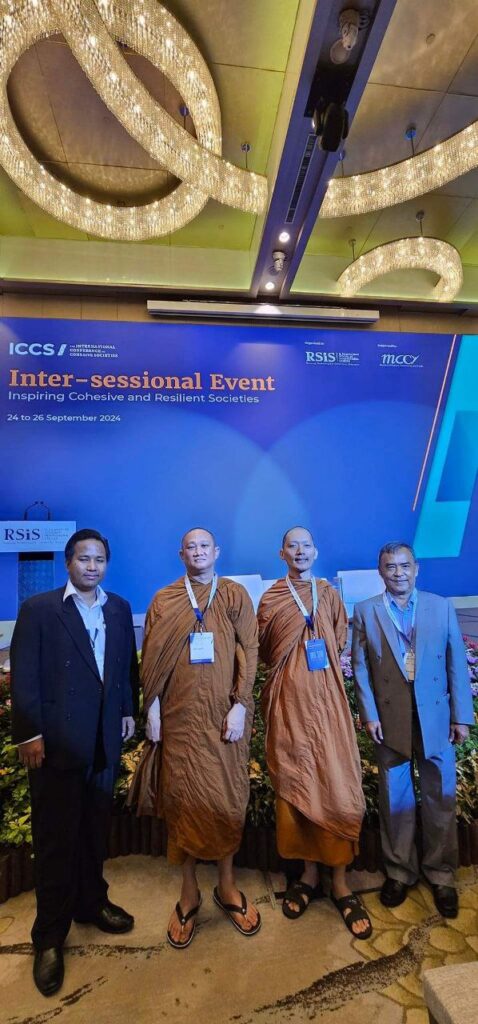From 23-27 September 2024, in Singapore, Amb. Pou Sothirak, Distinguished Senior Advisor to CCRS, and Him Raksmey, Executive Director of CCRS were invited to participate in the International Conference on Cohesive Societies (ICCS) Inter-sessional Event entitled “Inspiring Cohesive and Resilient Societies”, organized by the Social Cohesion Research Programme at the S. Rajaratnam School of International Studies (RSIS), with the support of the Singapore’s Ministry of Culture, Community and Youth (MCCY). About 100 regional religious and community practitioners, academics, researchers, and policymakers took part in this meeting.
This Inter-sessional Event intended to deepen understanding of challenges, share best practices, and develop potential solutions related to social cohesion from different parts of the world. The meeting also was designed to gather inputs from the participants to prepare for the 3rd ICCS scheduled to be held in 2025 – a RSIS’ flagship international conference aiming to promote social cohesion in the region and beyond. The 1st and 2nd ICCS were held in 2019, and 2022, respectively. During the meeting, there were a series of interactive lectures, panel discussions, and breakout workshops in relations to relevant topics including global social cohesion trends, challenges to social cohesion in plural societies, causes of social division and exclusion, and best practices of social cohesion.
CCRS had the opportunity to network with relevant participants including community and religious leaders, practitioners, and regional experts working to enhance social cohesion at the community, national, regional and international levels.
CCRS would like to take this opportunity to offer our sincere compliments to the organizers for the commitment to sustain the dialogue momentum among thought and practice leaders in between ICCS editions from the past to the present. CCRS believes that this unique event will foster continued engagement and able to identify relevant emerging themes as well as pinpoint pertinent issues for future ICCS iterations.
CCRS truly congratulate Singapore’s flagship event, the ICCS, for the successful hosting this important event. Our delegation has learned a lot from the well-structure lectures by eminent speakers. We also gain valuable knowledge from the inter-active Panel Discussions, Skills Workshops, and Breakout Sessions, and we enjoyed the Community Engagement Dinners, all of which we have no doubt that ICCS will steer wider dialogue and pertinent conversations towards enhancing social cohesion, deepening our understanding of modern challenges, and formulating effective strategies to fostering social cohesion.
The Key Takeaways of this Inter-sessional Event were as follows:
- The global trends of social cohesion are heading towards concerning directions, with proliferations of intracommunity, intercommunity, intrastate and interstate conflicts and wars. There are factors preventing societies from being inclusive and thriving. These pitfalls include: Volatile Geopolitical Landscape, Rising Inequality & Widening Income Gap, Climate Change, Immigration, Identity Politics, Disruptive Use of informational technology (IT) and artificial intelligence (AI), Lack of Effective Global Leadership, Weak state, regional and international institutions, and many other divisive trends.
- All relevant stakeholders such as governments, regional and international institutions, community and religious leaders, civil societies, academia and businesses along with the private sector must come together to address these issues to inspire greater harmony and cohesiveness for the well-being of all mankind.
- Given the ongoing decline of level of social cohesion globally, foresighted and courageous leadership worldwide is now important more than ever. There is a need of strong and sincere political willingness from national, regional and international leaders to balance between top-down and bottom-up approaches, and to balance between state interventions and societal autonomy, to further enhance global, regional and national levels of cohesive and resilient societies.
- This Inter-sessional Event presented a unique opportunity for the participants to actively discuss the myriads of social cohesion issues that continue to challenge diverse communities around the world. This is useful platform for all interfaith practitioners, scholars, and policymakers to engage from across various regions around the globe and backgrounds to network with like-minded delegates, and to present their candid perspectives and novel approaches to fostering social cohesion in their respective communities.
